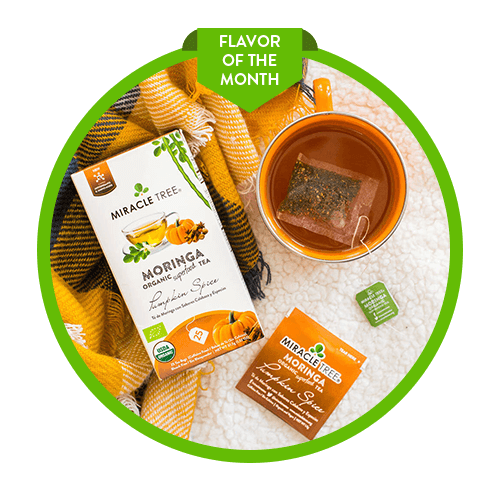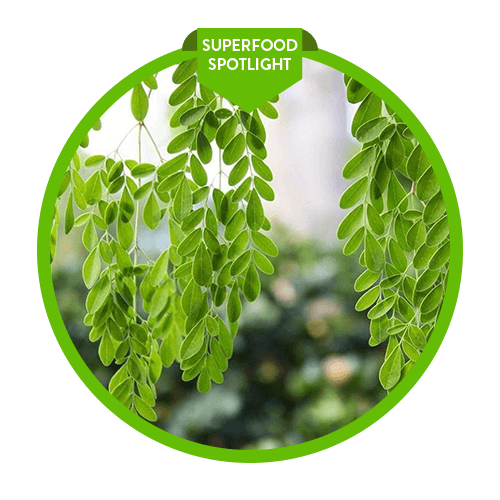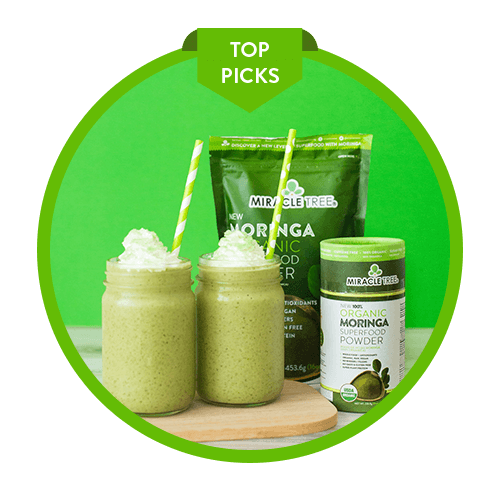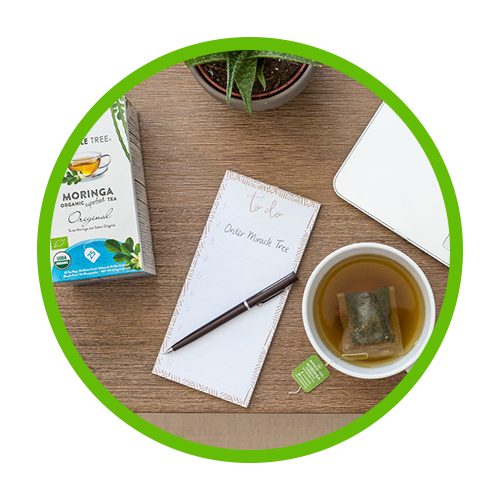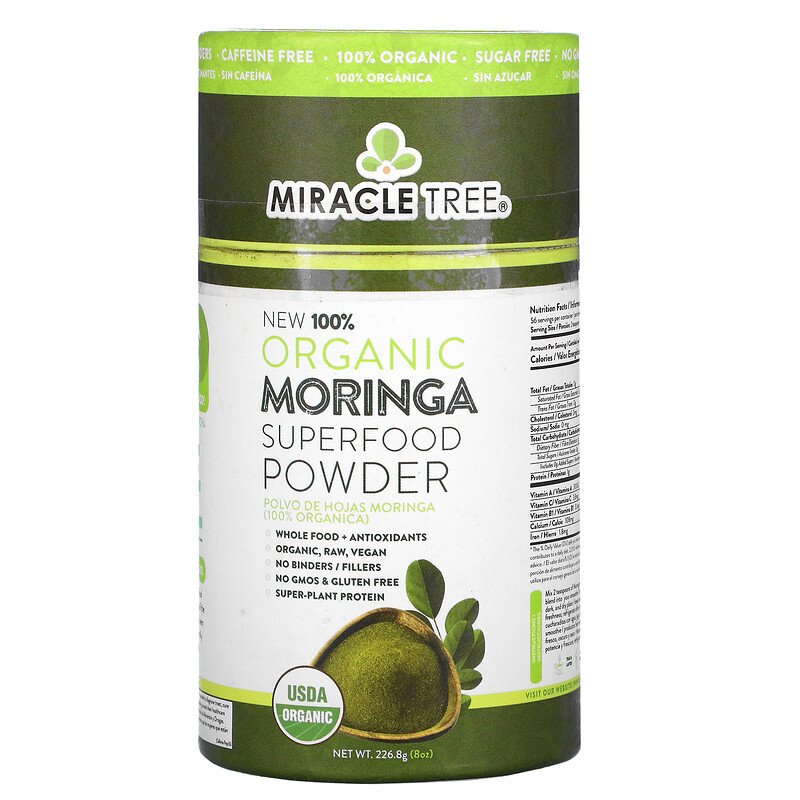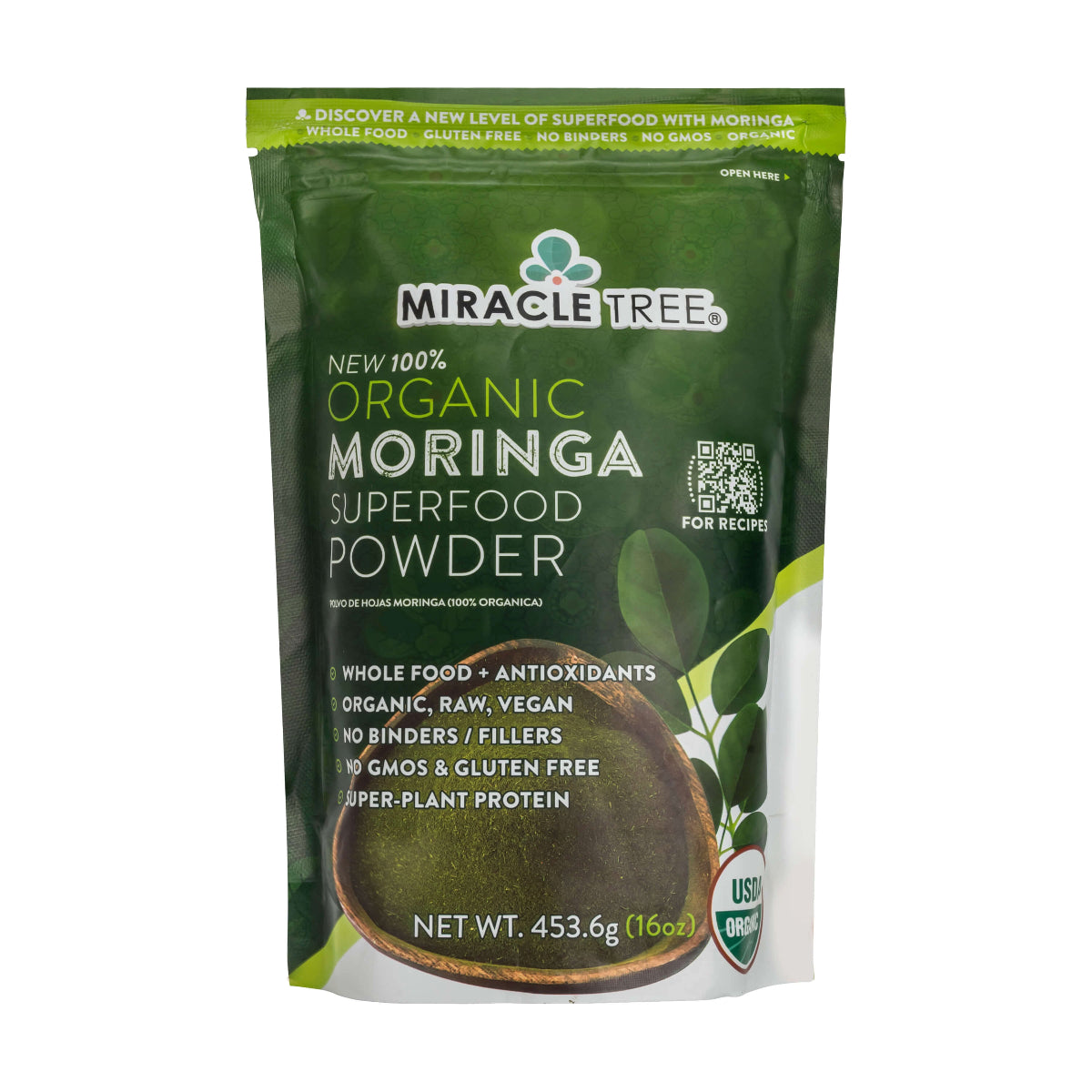Matcha has been gaining popularity as the superfood drink to try for the past few years. And while it has had its time as the healthier, tastier alternative for coffee, there is a new superfood beverage in town, and it packs even more of a nutritious punch. With no caffeine, and higher nutritional value, moringa is a powerhouse of nutritional benefits. So what would you choose in this race of moringa vs. matcha? To help you form an informed and educated choice, we delve into the four main pros of moringa, which matcha doesn’t quite match up to.
Moringa vs. matcha #1: Nutritional value
The nutrient list for matcha is undoubtedly impressive, but moringa has a wider range of nutrients and overall health benefits. While both are rich in antioxidants and have anti-inflammatory properties, moringa has higher levels of vitamins, calcium and iron. It’s also a better source of minerals and fiber.
We did a comparison of moringa vs. matcha and found that moringa has:
- 4 times the amount of vitamin C (per 100 g)
- 14 times the amount of vitamin E
- Over a 1000 times the amount vitamin A
- 20 times the amount of calcium
- 15 times the amount of iron
- 2 times the amount of fiber
A single serving of our Moringa Herbal Teas or Superfood Powders is enough to meet significant amounts of the daily-recommended intakes for all of these nutrients.
Moringa vs. matcha #2: Flavor Profiles
Moringa and Matcha powders have strong, earthy taste profiles and will take time to get used to. The best use of the powders is to pair them with variety of other flavors and recipes. Both powders are versatile and can be used in virtually any recipe. Unlike Matcha Teas, Miracle Tree’s Moringa teas have been specially crafted for a smooth and soothing flavor and can also be brewed as Ice Teas with no bitterness. We offer 18 different flavors of Herbal Teas as well as five kinds of Superfood Energy Infusions, all packed with nutritious benefits of moringa.
Moringa vs. matcha #3: Versatility
While moringa and matcha are both most commonly used as teas, moringa has a range of different benefits and can be used in many unique ways (find our recipes here). Our Superfood Powders can be used as a meal for breakfast, lunch, dinner, drinks and dessert recipes. You can find interesting, easy recipes here. You can also use it for a range of non-dietary purposes like skincare and hair care. Moringa’s wide variety of uses make it a more effective source for overall wellness.
Moringa vs. matcha #4: Caffeine or no caffeine
An important difference in moringa vs. matcha is that matcha, like other teas, typically contains caffeine, and moringa does not naturally contain caffeine. Although a caffeine-free diet is eventually healthier, a lot of people struggle with giving it up. As a result, many people still choose matcha as their morning drink—for the immediate energy rush—but it’s unfortunately followed by a crash in energy levels.
Given all of the benefits about moringa, it’s the superfood you must incorporate into your everyday diet. Its nutritional value, sweet flavor, versatility, and zero caffeine production proves that this green is well superior in the moringa vs. matcha debate. Our top picks - Peach & Ginger, Pumpkin Spice, and Rooibos.
* Disclaimer: Miracle Tree® products are not intended to diagnose, treat, cure, or prevent any disease.

